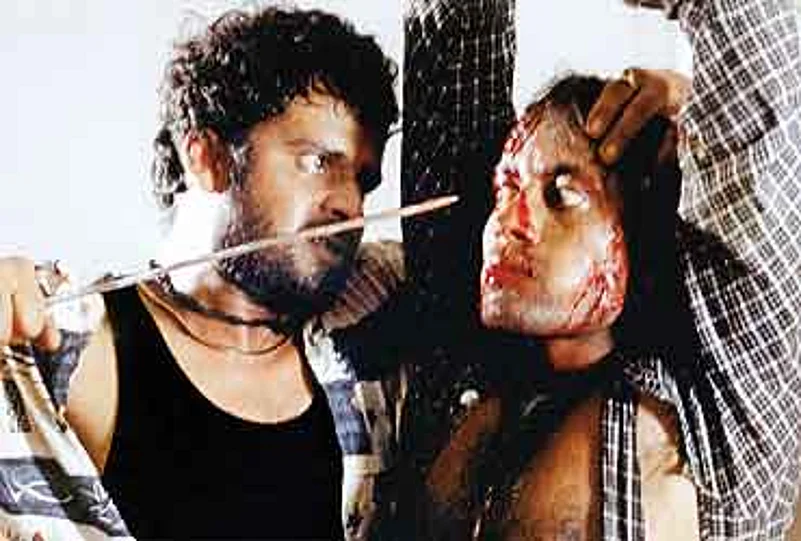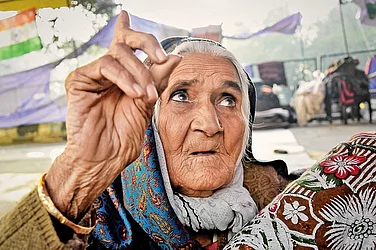Shyam Benegal hallucinates about human beings morphing into scissors whenever he hears the word 'censor'. Nagesh Kukunoor can't stop talking about his seven films that have been snipped before they have been declared fit for proper viewing. This when the board has passed other films which have had cusswords tossed around for special effects and violence against women/animals proscribed in the Cinematograph Act as their running theme. "There is an enormous amount of ambiguity that allows the censors to play god," says Kukunoor.
What is obscenity? How much liberty can a filmmaker take when showing violence? What film is suitable for viewing by a teenager and what makes watchable fare for a 'mature adult'? Filmmakers have long grappled with these questions with the censor board giving them cuts instead of satisfactory answers. No more perhaps. For, 53 years after the Cinematograph Act was passed in Parliament, the Union information and broadcasting ministry—that arbiter of the fine print on middle-class morality—embarks on an exercise to overhaul it systematically. Officials in the ministry promise the act will be liberal, in keeping with the times, though they concede there may be problems in getting Parliament to approve it.
This is the fourth time such an exercise to spell out the details in the act—seen as vague and confusing by filmmakers at the receiving end—is being attempted. The first two attempts—in 1982 and 1991—proved futile. Vijay Anand, briefly censor board chief during the nda era, tried to bring in some rationalisation on the question of adult content. But to no avail. His successor, Anupam Kher, too tried to modify the act, but failed.
This time round, say ministry officials, "we are overhauling the act completely so that it takes into account all the changes in technology and content that are taking place today." In the process, both the proposed Broadcast Regulatory Authority Bill, which will look at regulating content on television, and the new Cinematograph Act will be reviewed together as both music videos and short films require certification before they are put on air.
The proposed guidelines include the following changes:
Cuss & Tell
Filmmakers may, but will Parliament approve the I&B ministry's changes to censorship guidelines?

- Films are to be certified under the following categories: U (Unrestricted), UA (under parental guidance), Adult, MA (Mature Adult 25 and above) and S (restricted to members of a profession, say docs).
- Explicit sex will be prohibited. But there will be provisions in place for foreplay (though the guidelines aren't exact on the definition) in the MA category.
- Issue of male nudity will be addressed for the first time and the extent to which it will be allowed will be debated.
- There will be mandatory reservation of 33 per cent for women on the board.
- Linguistic and religious representation on the board has been recommended for the first time.
- Greater coordination among the regional boards required to avoid confusion.

Filmmakers, however, say any 'official' guidelines will always be open to interpretation and as a solution suggest an informal group of filmmakers rather than government appointees to examine films. "Let there be rapporteurs rather than decision-makers," pleads Benegal. "Beyond the rule prohibiting explicit sex and frontal nudity, everything else is open to interpretation. How do you define what is vulgar? Obscenity may mean many things. How do you propose to get a fix on that? How can a clutch of people decide on the morality of the people?" asks Benegal.
As a way out, Benegal says, the framers of the guidelines should be guided by how the Constitution defines the rights of individuals.Be clear, not vague. "Classify the films according to age and, as a precaution, flash a message beforehand advising some viewers against watching some scenes," says Benegal.Kukunoor thinks members should actually undergo training in film appreciation.

He should know. It was a revelation for the filmmaker who had just made his first film when the censor board told him that Indian girls don't kiss on screen. Left with the choice of either accepting the board's diktat if he wanted an Unrestricted certification for his film, or knocking at the Film Tribunal's doors, he chose the latter. The kiss in Hyderabad Blues stayed on for four seconds following the tribunal's intervention. Benegal faced a similar trial when he was asked to drop a cussword from his film Zubeidaa. "It was either the swear word with an Adult certification or nothing." He dropped it. More recently, the censor board advised the makers of Parzania, a post-Godhra film about a Parsi couple, to drop references to the Vishwa Hindu Parishad, and retain only the word Parishad.
The ministry knows it has a tough task on hand. Drawing a line has never been so daunting when it comes to 'defining' obscenity. Language too will pose a problem, more so in the case of cusswords. "Board members will be asked to see the context in which a particular 'offensive' word is being used and not excise it," say officials.
Former I&B minister Pramod Mahajan sees another problem in the categorisation. It won't help, he says. "How do you tell an 18-year-old from a 25-year-old, unless the act requires them to carry their identification cards and the onus of identification is on the gatekeeper of the cinema hall," asks Mahajan. He thinks censor boards have been quite liberal and do not require further "liberalisation". Recalling the days when audiences flocked to see a hint of cleavage in that runaway hit of the '60s—Sangam—Mahajan says both Indian cinema and the censor board have come a long way since then. "I see more problems on television than cinema and it is this content that needs to be regularised," says Mahajan.
The proposed new law will have to be passed by Parliament. It is perhaps fitting that people's representatives debate the guidelines governing film censorship before giving their verdict.















